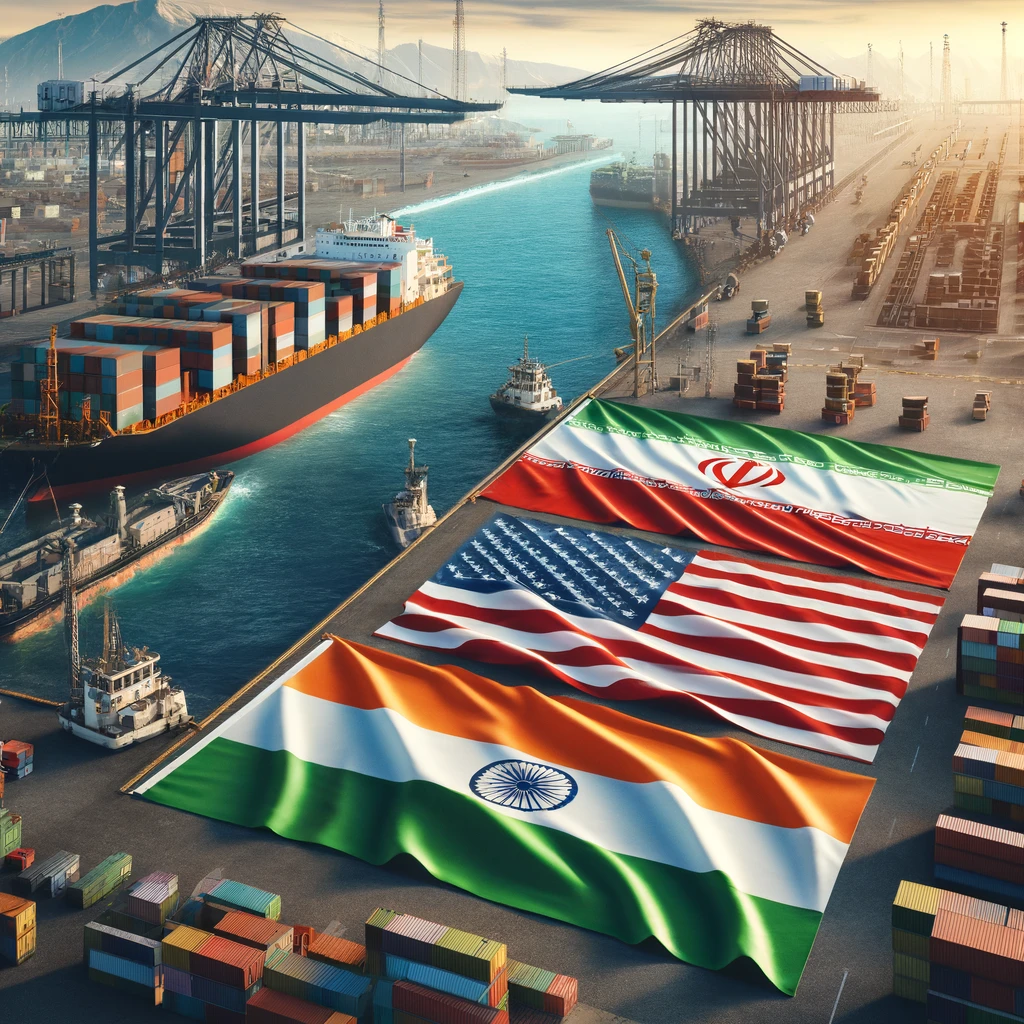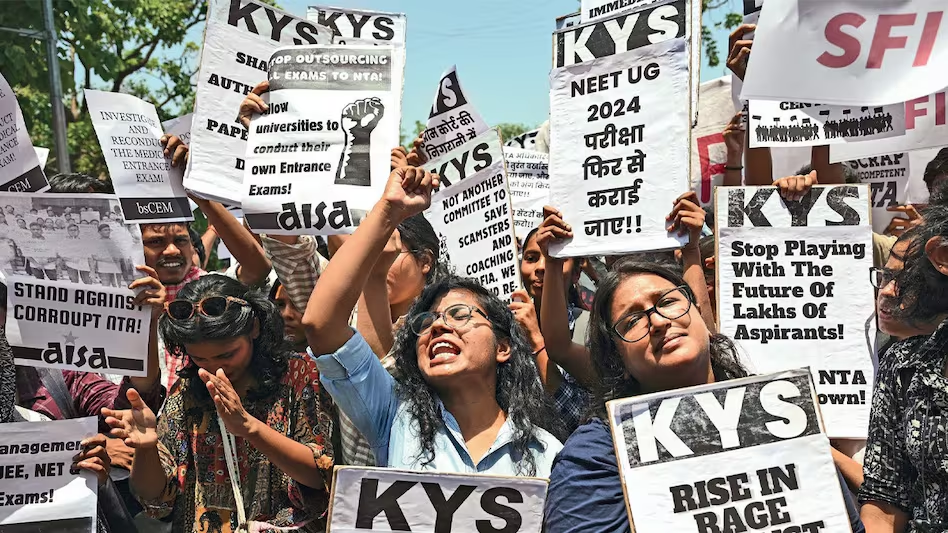Nestled on the southeastern coast of Iran, the Chabahar Port has emerged as a focal point of geopolitical interest and controversy, especially between India, Iran, and the United States. As the 2024 Indian elections swing into full gear, the stakes at Chabahar have heightened, transforming the port into more than just a strategic asset—it’s now a political chess piece on the global stage.
The development of Chabahar Port dates back to the 1990s when India first identified the need to bypass Pakistan to reach Afghanistan and Central Asia because our neighbour wasn’t always playing nice and we needed a new route to reach West Asia. However, the strategic importance of Chabahar increased significantly only in 2016 with the trilateral transit agreement between India, Iran, and Afghanistan, which was seen as a pivotal move to enhance India’s connectivity to the region, overcoming the geographical barrier posed by Pakistan (CSIS).
The Controversy and the US Stance
In a report by Hindustan Times, it was revealed that a recent deal between India and Iran to further develop Chabahar Port has stirred significant controversy, mainly due to the looming shadow of US sanctions. The United States has warned India of potential sanctions risks involved with the deal, citing the ongoing sanctions regime against Iran. This development comes at a time when the US views India’s actions through a strategic lens, considering its own geopolitical interests in the region.
Economically, Chabahar Port is poised to transform trade dynamics in South Asia and beyond. It serves as a gateway not just to Afghanistan and Central Asia but also has the potential to reduce dependency on traditional routes like the Suez Canal. However, the economic benefits come with their set of challenges, including geopolitical tensions and the complex relationship dynamics between participating countries (Asia Maritime Transparency Initiative).
Indian Elections and Global Interference: A Potent Mix
As India marches towards completing its seven-phase general elections, the Chabahar Port deal has also become a domestic political issue. The ruling party although feebly, may leverage the deal to showcase its commitment to enhancing India’s global standing and strategic autonomy. However, global powers, notably the US and China, are closely watching India’s moves, each with its strategic interests, influencing the narrative and potentially the election outcomes.
In response to the US warnings, Indian officials, particularly our external affairs minister (EAM) S Jaishankar have underscored the strategic importance of Chabahar for national interests, highlighting its role in enhancing regional connectivity and stability. By advocating for a “narrow view” of the situation, India aims to assert its strategic autonomy while balancing its relations with both the US and Iran.
As India asserts itself on the global stage, the responses from Western powers, particularly the United States, highlight a deeper narrative that often seems misaligned with the realities of contemporary India. This dissonance in perception can be partly attributed to the remnants of a colonial mindset that the West has historically applied to its relations with former colonies, including India.
The West’s portrayal of India often swings between the extremes of exotic mystique and chaotic dysfunction, a dichotomy rooted in historical colonial attitudes that viewed the East as both a land of untapped potential and a region needing guidance. This perspective has evolved but not entirely dissipated. In contemporary geopolitics, this manifests as a reluctance to acknowledge India as a peer in international affairs, often leading to patronising attitudes towards India’s domestic and foreign policies.
S. Jaishankar has been vocal about this issue. In a recent statement, he critiqued Western nations, particularly the US and Canada, for their “narrow view” of India, accusing them of failing to appreciate the nuances of India’s strategic and domestic decisions. Jaishankar argues that the West often holds India to standards or expectations that are either outdated or skewed by their strategic interests, without a genuine understanding of India’s regional dynamics and internal priorities.
The Chabahar Port as a Case Study
The controversy surrounding the Chabahar Port deal provides a clear example of this dynamic. The US’ warning against India’s involvement in Chabahar due to sanctions on Iran reflects a policy approach that prioritises American geopolitical strategies, potentially at the expense of regional stability and prosperity that the port aims to enhance. This American stance underscores a broader pattern of expecting compliance from India, without adequately considering India’s need to secure its own strategic and economic interests in Afghanistan and Central Asia.
The strategic significance of Chabahar extends beyond immediate economic benefits; it is pivotal for India’s aim to circumvent Pakistan and establish a direct trade route to Afghanistan and further to Central Asia. This move, which challenges the status quo of regional geopolitics heavily influenced by Pakistani and Chinese interests, is seen by India as crucial for its own sovereignty and economic security. The Western critique and pressure potentially undermine this strategic autonomy, viewing it through a lens coloured by their geopolitical contests rather than recognizing the legitimate interests of regional players.
India’s journey on the path to being a global influencer is fraught with challenges, not least of which is navigating the complex web of Western perceptions and expectations. As the country continues to grow in stature and confidence, the need for a balanced narrative that respects its sovereignty and acknowledges its regional aspirations becomes increasingly critical. The discourse around the Chabahar Port is just one of many arenas where India must assert its narrative, one that hopes to gradually reshape how the West views and interacts with a rapidly changing India.
As Chabahar Port continues to be a critical juncture for regional connectivity and global geopolitics, India finds itself navigating a complex web of international relations and domestic politics. The port’s development is not just about economic benefits but also about asserting India’s role on the world stage. With the Indian elections on the horizon, how India manoeuvres this geopolitical challenge could redefine its global relationships and its domestic political landscape.
The development and controversies surrounding Chabahar Port epitomise the intricate dance of diplomacy, strategic interests, and economic aspirations that define contemporary global politics. As stakeholders watch closely, the port’s future remains a testament to the ever-evolving dynamics of international relations.




